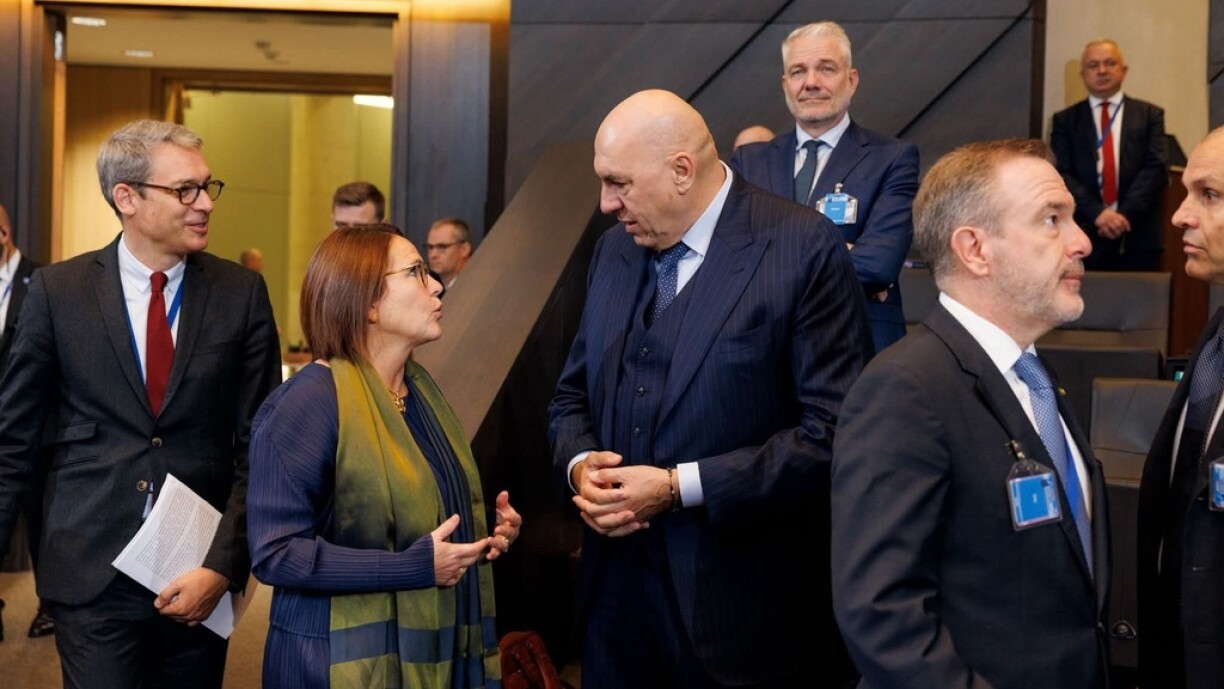
On Wednesday, the defence ministers of NATO member states have reaffirmed their determination to respond to Russia’s repeated violations of NATO airspace. Luxembourg’s Defence Minister Yuriko Backes made this clear on Wednesday in Brussels, where meetings of NATO defence ministers, the Ukraine Contact Group, and EU defence ministers were held.
“The conclusion among NATO partners could not have been clearer: Russia’s airspace violations are unacceptable,” Minister Backes said.
“We will not tolerate this. But we will also not allow ourselves to be provoked. Our responses will be measured, and I believe that has indeed been the case so far,” she added.
The meetings in Brussels focused on strengthening deterrence and defence posture following decisions taken at the NATO Summit in The Hague in June 2025. In response to hybrid threats and recent violations of Euro-Atlantic airspace by Russian drones and fighter jets, the Alliance has stepped up its vigilance and reinforced defence capabilities on its eastern flank and in the Baltic Sea.
Ministers reviewed NATO’s collective response and discussed additional measures needed to ensure the security of the Euro-Atlantic area. Backes welcomed the Allies’ swift, decisive and coordinated actions, underlining that “the work currently underway in the field of air and missile defence is of crucial importance.”
“We also discussed the idea of a ‘drone wall.’ Today, we have the capabilities to defend ourselves effectively. But cooperation and coordination remain key, and that was exactly the focus of today’s discussions: the determination to stand together and counter these threats.”
NATO and the EU also agreed to strengthen cooperation on drone defence, which Backes described as both essential and complementary.
“Nothing that happens within NATO should be duplicated at the European level, and vice versa. One should complement the other. The EU must strengthen its own setup, but always in a way that supports NATO’s efforts. That’s the kind of coordination and dialogue we’re striving for, and it’s already happening.”
Earlier in the day, Backes also took part in the 31st meeting of the Ukraine Defence Contact Group (UDCG), chaired by the German and UK Defence Ministers. Together with Ukrainian Defence Minister Denys Shmyhal, the participants reviewed the situation on the battlefield, Ukraine’s most urgent military needs, and future assistance priorities. “The Russian president’s message is clear: Russia is not interested in peace. Our response is equally clear: we will not give in, and our support for Ukraine will continue for as long as necessary,” Backes stated.
In Brussels, ministers also reviewed progress toward new defence spending targets agreed at the NATO summit in The Hague. The United States has called for allies to increase spending to between 3.5 and 5 percent of GDP.
“We see the threat we’re facing, daily Russian violations make it clear how crucial it is to keep investing in our defence, in our collective defence,” Backes said. “We even had a working lunch with the Ukrainian defence minister. And we can see that we still have a lot to learn from Ukraine, particularly when it comes to drone defence.”
Later in the evening, Backes joined a working dinner of the Foreign Affairs Council in its ‘Defence’ configuration. Discussions focused on increasing European defence capabilities, strengthening preparedness, and integrating Ukraine into various EU initiatives. During the session, Backes presented Luxembourg’s satellite capabilities, which her ministry intends to make available to the EU and its member states to support joint operations and situational awareness.
Ukraine’s defence needs, particularly air and missile defence systems, were also high on the agenda. NATO’s Secretary General and the United States recently launched the PEARL initiative, enabling NATO members to purchase available U.S. weapons systems while European alternatives remain limited.
Luxembourg has already announced its participation in the initiative, contributing €15 million.
Meanwhile, Ukraine’s Defence Minister is scheduled to visit Luxembourg on Thursday